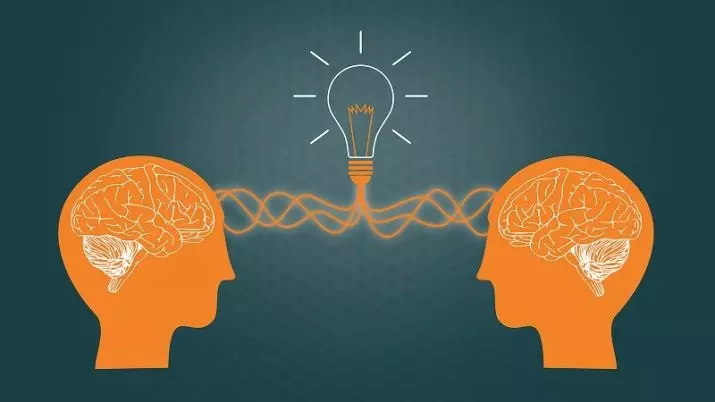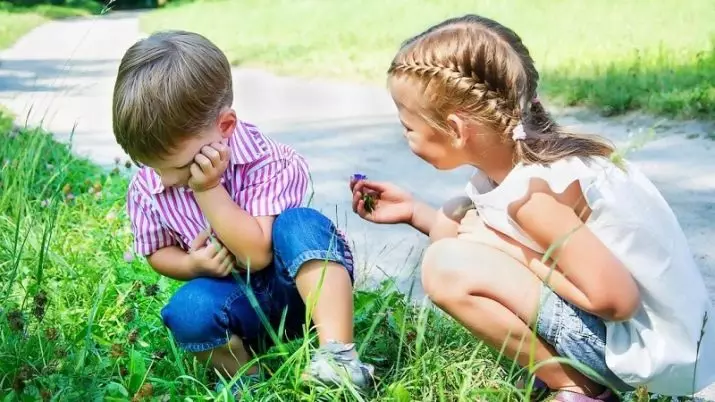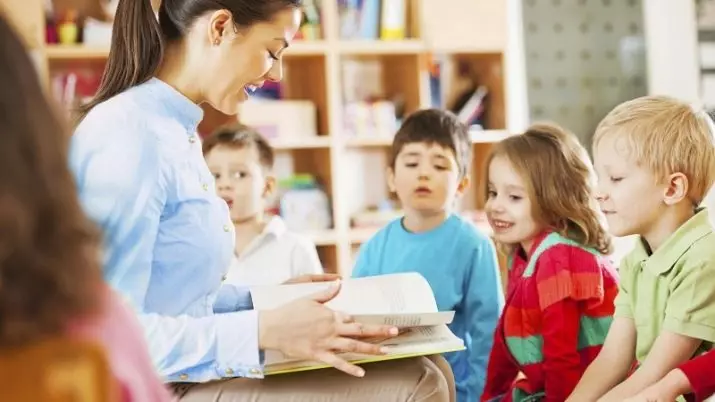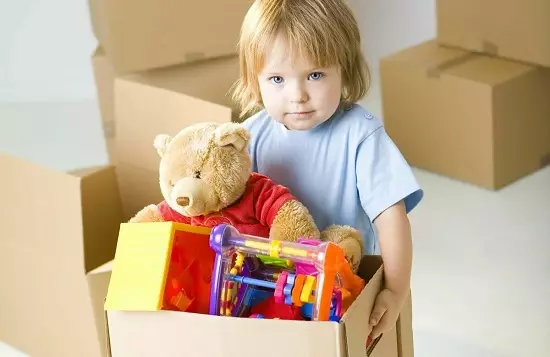Empathic processes are subordinated to the tasks of socialization at an early age. Children are able to experience someone else's experience and respond to him.

What it is?
The ability to understand the emotions and the experiences of another person are called Empathy. The condition can manifest itself in the form of sympathy, empathy and assistance. Empathy in children is formed in the process of knowing the surrounding world, itself and other people. It occurs already in infancy. Krocha smiles in response to a smile, manifests a reaction to the crying or exclamations of other kids. Up to 10 years, a person is gaining a positive experience, which is further affected by its emotional response.
- The initial stage of the development of the kid is characterized by the acquisition of the ability to sympathy and empathy. Kroch can imagine himself on the site of close people.
- The second stage is associated with the awareness of personal feelings and emotions. In early childhood, the kid is feeling a feeling of pain in a fall or disorder, when the mother goes somewhere, but he still cannot understand his emotions and somehow express them.
- Lastly, awareness is being formed that the other personality allegedly feels. At this time, it is recommended to disassemble different cases that have occurred with the surrounding or mined from fairy tales, stories, poems, cartoons. It is necessary to discuss events, whose participants are parents or a child himself.
It is very important to kicker to instill a compassion, otherwise he will grow by a selfish, self-breathable person. The presence of children's empathy allows the child to successfully fit into the group of peers, work in the same team and develop intellectually. A empathic person understands what is happening with the others at the moment. If some kind of child is crying or afraid, then empathy want to figure it out in his situation, and then help the sufferer. The formation of empathy depends on the experience gained with adults of experiences, the emotional contribution of the child itself, as well as from its temperament.
The interrelation of temperament with empathia is particularly pronounced in adolescence. The aggressive behavior of teenagers is observed mainly at choleric and melancholics with a low degree of empathy.

Influence of education
The development of responsiveness in children directly depends on the empathic installations of parents. The psychological atmosphere in the family is reflected on the emotions of the child. The manifestation of love, kindness, tenderness and affection is not enough to develop a sense of empathy. In family relations, it is necessary to demonstrate an empathic manifestation model. The kid must see care and sensitivity towards households.The lack of an adequate emotional response of a mother or father can brake and even block the functional mechanisms of empathy. Adults should pay the attention of children on other people's own emotions. In the process of socialization, it is the parents that give the child the first empathic instructions: "Why did you push the boy? You yourself hurt when you fell! Apologize to the boy. "
How to determine the level?
There are various techniques to identify the level of formation of empathy in children. For preschoolers, technicians created by G. A. Uruntaev and Yu. Aphonkina are used. One of their techniques implies the reproduction of the story scenes. First, children must portray different situations. Then they are polled that he feels every hero of this story. At the second stage, participants demonstrate various emotions. The specialist processes the results obtained, detecting the degree of formation of empathy for each kid.
The diagnosis in junior schoolchildren is carried out with the help of N. E. Methods, the prass of the type "When a person is offended in my presence, I ..." or "You can call one who ...". A schoolboy who has an incorrect idea of humane quality, receives 1 score. A child with incomplete understanding earns 2 points. Children with a clear and clear idea of the concept are awarded 3 points.
To identify the level of mental responsiveness of adolescents, questionnaires requiring honest answers are used. Express techniques I. Yusupova, V. Boyko are popular.

How to develop?
For the formation of an empathic feeling, psychologists advise using various exercises. In the first year of man's life, a useful occupation is a game of hide and seek. Kroch always experiences bright emotions at the sight of a sudden face of the parent after a period of time after its disappearance. The game in "Ku-ku" helps a baby to realize that parents will definitely appear at the right moment. From year to 3 years, it is recommended to provoke a child to find a lost toy. At the same time, certain tips should be given to the baby: "Probably, your Teddy bear is sitting under the bed or under the table, but cannot find the road from there." Then the baby focuses its attention not only on its own emotions, but also to help adults, under the guidance of which he copes with distrust to the outside world.
Formed from preschoolers, the responsiveness can be configured to establish contact with fauna representatives. Pets help to develop a sense of responsibility and empathy from the kid. From the five-year-old age, the child is able to smile in different ways. With the help of a smile, you need to demonstrate the joy at a friend's meeting, to portray the support of a friend who has fallen into trouble, express sympathy to a sick person. Psychologists recommend practicing an original greeting. For example, it is offered to kid when you meet with my mother to kiss it in a cheek, with dad - shake your hand, with a brother - to lose your noses. Friends can be greedy using the gesture "Let five" or a air kiss. For children of preschool age, it is imperative to read fairy tales saturated with various feelings, discuss features and character of heroes. It is necessary together with the kid to find the meaning of the fairy tale and come to some conclusion. Stay while reading, ask questions like "Will Ivanushka insulting, what is called a fool?" Or "What feelings were tested by Cinderella when she moved the croup?"
Exercise "Give Affectionate Word" suggests in response to a compliment to say a pleasant phrase to the interlocutor. With this task, children learn to show response and present it as a gift to people. Tell the child about the children left without parents. Together collect the parcel for the pupils of the orphanage. The development of empathy in adolescents is happening with sincere relationships with parents. If this contact is broken, this circumstance negatively affects the spiritual formation of the person.
Teenagers can be taught by the feeling of empathy and understanding the spiritual world of another person only with the help of trust and friendly contact with him. In this case, it becomes possible to form a solid foundation for the possession of Empathia for the rest of your life.


